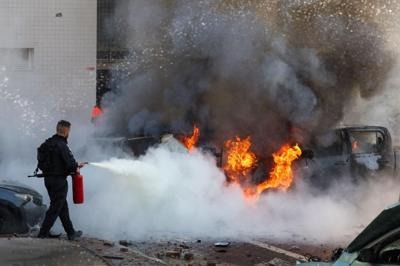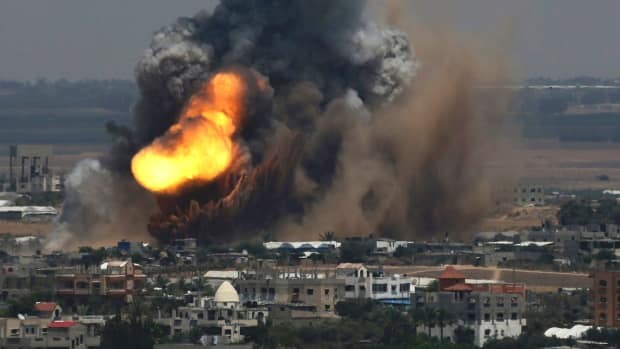Biden concedes airstrikes ineffective; fifth against Houthis

Houthi leader mocks Biden, urges Israeli goods boycott; president expects ongoing attacks.
Despite a fifth strike on Houthi rebel targets in Yemen, Joe Biden admitted that the bombings have not succeeded in halting their attacks on shipping in the Red Sea.
On Thursday night, US warplanes directed their strikes at anti-ship missiles positioned to launch into the southern Red Sea, as reported by US Central Command.
During a discussion with reporters in Washington DC, the US president openly discussed the effectiveness of the airstrikes, stating, When you say working, are they stopping the Houthis? No. Are they going to continue? Yes.
Following Biden’s comments, Houthi militia launched two anti-ship ballistic missiles at a tanker owned by the US, hitting the water near the vessel but causing no injuries or damage, as reported by the US military.
Hours after Biden’s remarks, Houthi leader urged Arab nations to boycott Israeli goods, citing US and UK missile attacks as a sign of the impact of their actions on Israeli-linked shipping. In a lengthy address with religious undertones broadcasted on Arabic media, Abdulmalik al-Houthi expressed pride in confronting the US directly. He dismissed the recent missile strikes’ effects, claiming they only enhanced his army and navy’s technology. Al-Houthi also ridiculed Biden, portraying him as an elderly man traveling long distances to attack those supporting the oppressed people of Gaza.
He questioned why nations oppressing Gaza believed they could brand others as terrorists for fulfilling their religious duty to assist Palestinians, referencing Washington’s decision to formally designate the Houthis as a terrorist group. The Houthis, he argued, were targeted because they took practical steps to support Palestinians, unlike the lukewarm stance of many Arab and Islamic leaders.
Al-Houthi asserted that regardless of threats, missiles, or pressure, their position would not change. He stated that attacks on ships linked to Israel would persist until the blockade on Gaza was lifted, emphasizing the Palestinians’ right to receive aid from air, land, and sea without hindrance. He claimed that the Zionist enemy sought to ensure the sea remained safe only for them.
In his address, which included criticisms of the Zionist lobby and the LGBTQ+ community, he cautioned that the war represented a broader conflict between devil-worshipping Zionists and the Muslim world. Encouraging Yemenis to demonstrate mass support on Friday for their compatriots killed by US forces, he emphasized the wider narrative.

Since November, Houthi militia, backed by Iran, has targeted ships in the region, disrupting trade between Asia and Europe and causing concern among major powers. The Houthis, holding sway over most of Yemen, claim their actions are in solidarity with Palestinians in Gaza.
Earlier on Thursday, the US military launched a fourth round of missile strikes from the Red Sea, hitting over a dozen sites. This followed a drone, launched from Houthi-controlled areas, striking a US-owned vessel in the Gulf of Aden.
It remained uncertain whether the Houthis’ capacity to conduct further attacks on shipping in the Red Sea, using either missiles or drones, had been impaired.
The widening scope of Houthi operations suggested potential damage to some of their missile launch pads. The Houthis’ disruption of global supply chains took center stage at the World Economic Forum in Davos, Switzerland, highlighting their emergence as a geopolitical force. Israel’s president, Isaac Herzog, criticized the Houthi “tribe of 50,000 people” armed like an empire, expressing concern over the unfolding situation.
Houthi leaders asserted that their assaults on commercial shipping in the Red Sea would cease once the “Israeli aggression” in Gaza ended. At the Davos forum, UK Foreign Secretary David Cameron met with Maj Gen Aidarus al-Zoubaidi, the deputy president of Yemen’s UN-recognized government, to discuss the conflict’s next steps and the fate of UN-led peace talks with the Houthis.
Despite initial doubts about the meeting due to concerns over Zoubaidi’s calls for western support, the Southern Transitional Council (STC), led by Zoubaidi, praised allied airstrikes and Washington’s reclassification of Houthi militias as a “global terrorist group.” The STC commended these actions, citing the Houthi’s negative impact on citizens and the disruption of goods and aid flow to ports.


